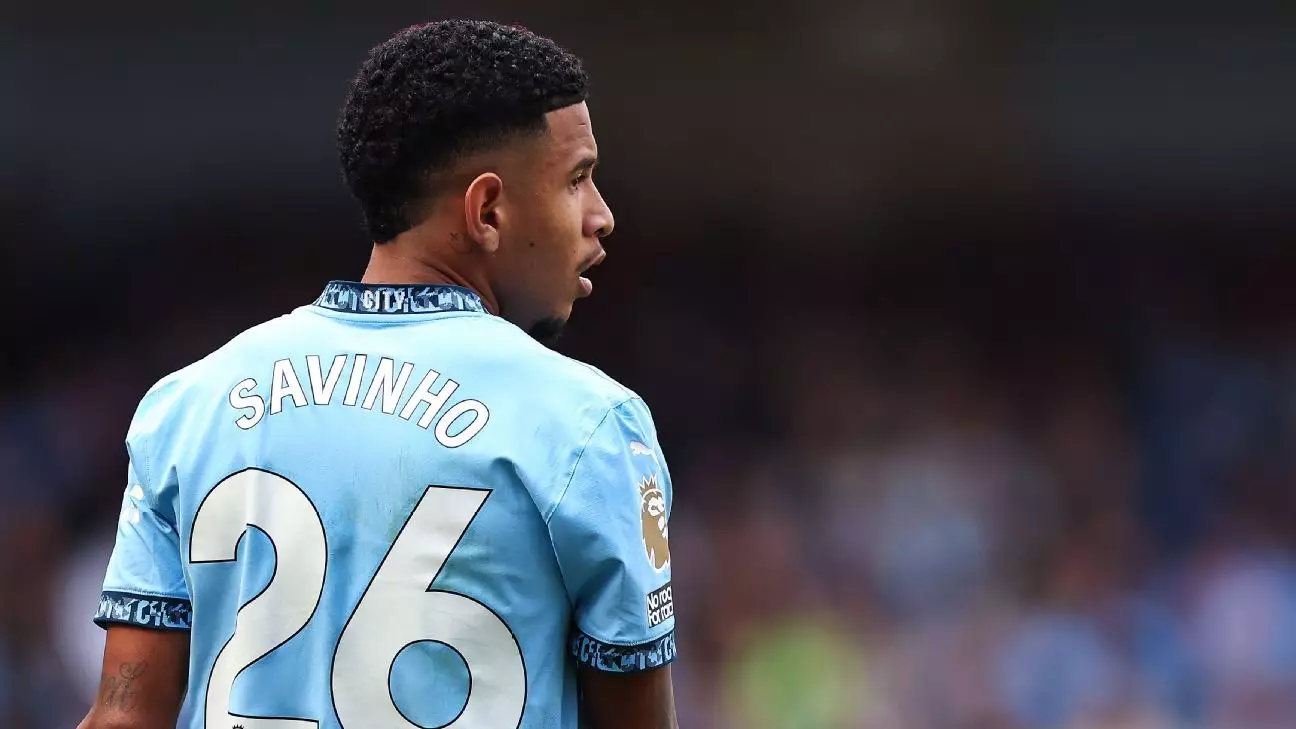In an era where football clubs often chase quick fixes through aggressive transfers, Manchester City’s choice to retain Savinho signals a different philosophy—one rooted in patience and belief in nurturing talent. Despite interest from Tottenham, City’s firm stance to keep the young Brazilian winger underscores a commitment to long-term development over short-term gains. This decision reveals a calculated confidence in their squad and coaching staff, valuing potential over immediate necessity.
City’s management clearly recognizes Savinho’s potential, as evidenced by their refusal to entertain offers—even as rumors swirled and rival clubs showed interest. Instead of capitulating to external pressures or lucrative offers, they prioritize stability. This move suggests that City sees Savinho as more than just a squad depth player; they envision him as a pillar for future seasons. Such faith in a 21-year-old indicates a maturing strategic mindset—one that prioritizes growth through patience rather than impulsive transactions.
The Broader Implications of Staying Put
While the immediate narrative centers on Savinho’s future, the broader implications for Manchester City are significant. By holding onto the winger, City preserves a player whose development has already begun but remains incomplete. His initial season in England showcased promise—scoring vital goals and gaining invaluable experience—yet injuries prevented him from making a more substantial impact this season. Keeping Savinho hints at a belief that the best is yet to come, and that rushing to replace or ship him out would be shortsighted.
This decision also reflects a strategic confidence in City’s squad-building approach—one that emphasizes internal growth and sharpening young talents. Instead of chasing high-profile signings for the sake of headlines or quick fan appeasement, City is investing in the belief that their current roster, with Savinho included, can surpass challenges. Their rejection of Tottenham’s pursuit can be read as a testament to their dedication to fostering an environment where homegrown and developing players are prioritized.
What Does This Mean for the Transfer Market and the Future of City?
The refusal to offload Savinho also signals a shift in how clubs perceive transfer negotiations. Rather than caving into immediate demands, City exemplifies a stance of principled patience—highlighted by their willingness to keep rather than sell. If they believe in a player’s potential, they’re prepared to wait and develop rather than seek quick replacements.
Furthermore, the decision sends a message to the broader transfer market: patience can be more rewarding than impulsive shopping. It underscores the importance of trusting a club’s long-term vision and the talent pipeline. As for City’s future, retaining Savinho amplifies their certainty that their current coach, Pep Guardiola, can mold promising talents into world-class players. It’s a vote of confidence in both their management and their philosophy of sustainable growth.
In the end, Manchester City’s choice to hold onto Savinho reinforces a bold ethos—one that values strategic patience, player development, and a focus on quality over shortcuts. These principles, when applied consistently, could well position City for sustained success—both on and off the pitch—and serve as a blueprint for other ambitious clubs to follow.

